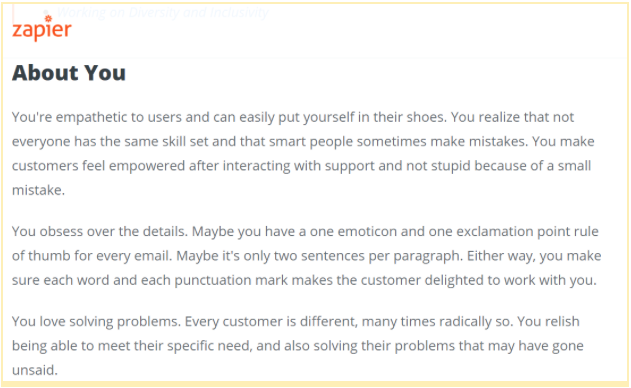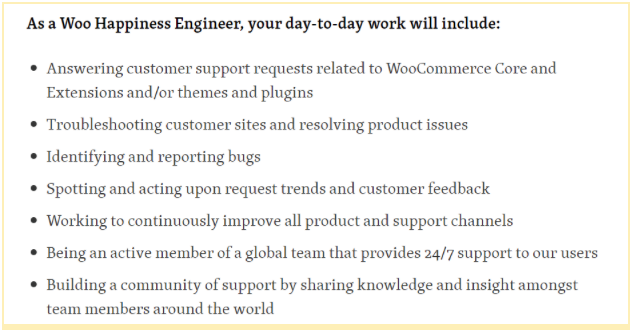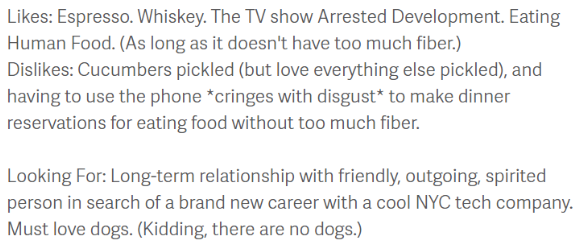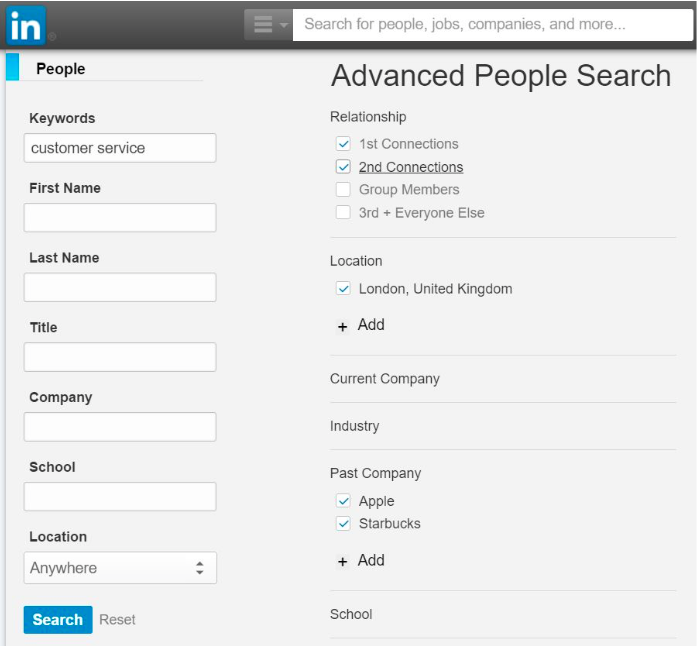Most managers trust their gut when it comes to hiring. They sort through a pile of resumes, glancing through qualifications and after a couple interviews, hire the (apparent) best candidate. Unfortunately, this probably means they aren’t doing much better at picking top talent than if they were throwing darts at a board. Blindfolded.
If you’re using an unstructured hiring format, you can only expect the results to explain future work performance of the hire 14% of the time. I don’t know about you, but I’d like to be 100% sure of the hires I make. If you are putting low quality candidates into the top of your hiring funnel, you’ll be getting poor hires out of the bottom. In this article, I’ll walk you through why it’s so important to spend time hiring the right person, some tips for spotting top customer service agents in the interview process, and how to get the best customer service talent in the door.
Why it’s important to get it right
Bad hires are expensive. Not only have you wasted time and effort recruiting them, training and onboarding them, it’s also demoralizing for the team. Careerbuilder estimated that a single bad hire can cost your team $50,000 (besides their salary!) in lost productivity, morale and logistic costs. Tony Hsieh of Zappos has seen a far greater cost. He thinks taking on the wrong hires has cost Zappos millions over the years. To reduce the impact this has, Zappos now offers new hires $2000 to leave after the first week of training. The thinking is that if they take it – they weren’t a good fit anyways.
Recruiting top customer service agents
Fortunately, most of us don’t need to be as drastic in overhauling our hiring processes as Zappos. A few simple tweaks will help improve your win ratio quickly. You’ll need to understand what you’re hiring for, create a great job description, optimize the interviews and then continue to evaluate the ongoing process annually.
Understand the role you’re hiring for
There’s often many people involved in the hiring process. Each person has their ideas or picture of the person they’re looking to hire. HR thinks you’re looking for someone to answer the phone, the team thinks you need another entry level hire, but you know that you need to fill a technical skill gap and need someone with Linux experience. If your HR team keeps feeding you candidates with great verbal communication skills but no Linux experience, that process is not going to be very effective.
To paraphrase Einstein – if you’re searching for someone to climb a tree and HR is only giving you fish, you’re not going to get a great hire.
There’s a simple way to address this. Talk together! Have a kickoff meeting with all the stakeholders involved with hiring new customer service talent, and discuss the role and candidate you’re looking for. Here’s a few questions to get the discussion flowing:
- What will the new hire be expected to do? In 3 months? In a year?
- How will they be measured?
- What qualities will they need to fit in well with the team?
- What experience or background do we expect them to have?
- Who has been successful in this role before and why?
- Bring example resumes and talk through the pros and cons of specific candidates
The purpose of this meeting is to align your expectations and ensure you’re all on the same page. Taking 30 minutes at the start of the hiring process (or at the beginning of each year) will make sure you’re getting good quality candidates passed along in the process.
Create an attractive Job Description
Now that your whole team is primed to find the best candidate, it’s time to put some words on paper. Job descriptions are important. Not only do they need to… describe the job… but they also need to showcase your company’s personality. Following a template can help generate job descriptions that are attractive, thorough and inviting.
Opening
State the position that you’re recruiting for, the location they will be based, and any other essential information in a conversational tone. Next, boil down the essence of what the role will be into a quick description. Finally, describe the ideal candidate in a way that will make your target hire say “Yes! That’s me!” Zapier dedicates a whole section to describing who they are looking for.

The Job
Be clear about what you expect a successful candidate to do in their day to day role. A good rule of thumb is to include anything they will spend 10% of their weekly time on. Bullet points are your friend here! Here’s a sample from Automattic’s posting for a Woo Happiness Engineer.

Experience needed
This is probably where most job descriptions fall apart. Instead of being exclusive in the experience you accept, be inclusive. Generally, top candidates with 1 year of experience will be better than poor candidates with 10 years of experience. Does an applicant really need an engineering degree to be successful? Unless the job requires industry training and certifications, less is more in this section.
Wrap it up
Give a little more background about the company and any other small details the candidate might need (ie. that you follow certain non-discrimination hiring policies). This is also a great place to mention company benefits and perks. Take one last opportunity to sell your ideal candidate on why they would want to work with you.
Give it personality
Once you’ve included everything you need, read over your work. Does it accurately portray the personality of your work environment? If you’re casual and conversational in your work, does that ring true to the job description? I love this job description from Acuity Scheduling. It’s unconventional, but so are they. Chances are, if you don’t giggle at this posting, you’re not going to have fun in the job, and they don’t want that!

Actively recruit the kind of candidates you want
Look at your existing high performers. Where did they come from? What qualities are similar between them? I’ve frequently found success in hiring customer service reps from Apple, Starbucks and… surprisingly librarians! The first two backgrounds are obvious – those companies are known for well structured training programs that create a customer service culture throughout their organizations. Librarians tend to be great customer service agents because they are great communicators, can organize and memorize knowledge and tend to be very empathetic. A simple LinkedIn search can find local (or remote!) talent that fits the experience you’re looking for.

Regardless of the commonalities between your high performers – try and replicate this in your next hires. You’re not looking for cookie cutter copies, but rather the same innate qualities that you know will make them succeed.
Finally, ask your high performers to refer good candidates and reward them for it. Your customer service team is the most invested in the next team hire because they will have to work closely with them. They have good reason to refer the best people for the job.
Make the interview process work for both parties
Good quality candidates move quickly. They don’t pop up on the market often, and they don’t stay unemployed for long. If you are lucky enough to attract top talent, you don’t want to leave them in limbo for long. Be specific about what the process will look like, and don’t allow unnecessary delays in scheduling the next step to pop up.
Job interviews are a two-way street – just as you are evaluating them, top talent will be evaluating you and your company. “Is this a place I want to work?” “Will I be appreciated, respected, encouraged to grow and develop?” “What’s the work-life balance like?” Make sure to give the candidate lots of opportunities to ask questions, and show them a peek into their future role. Have a “neutral” third-party HR manager give them a call to follow up and see how everything went. You should be actively selling the role and the company to them. If they are the right candidate – it’s worth it!
Evaluate the hiring process
Don’t set it and forget it. Your hiring process will need to be evaluated frequently to determine if you are, in fact, a high-performing recruitment machine.
- Ask both successful and unsuccessful candidates for their opinion on how the process went. How did they find the job opening? Did it match their expectations?
- Evaluate new hires. Are they the right fit? Keep track of how successful they are, and how long they stay with the company.
- Get metric savvy. What percent of applicants make it to an interview? What percent of interviewees make it to the offer? How many offers are turned down? Relentlessly seek to improve these numbers to become more efficient at getting the right hire the first time.
The takeaway
You get out what you put into it. If you want to build a great customer service team, you need to invest in attracting and hiring top talent. After all, these are your front-line warriors. Putting in the effort insures that you come out with a great selection of candidates to choose from and ultimately – the best customer service team!



